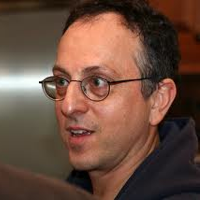How scientific thinking is all about making connections
When it comes to the field of science, making connections between those dots of knowledge seems to be just as important. In The Art of Scientific Investigation, Cambridge University professor W. I. B. Beveridge wrote that successful scientists “have often been people with wide interests,” which led to their originality:
Originality often consists in linking up ideas whose connection was not previously suspected.
He also suggested that scientists should expand their reading outside of their own field, in order to add to their knowledge (so they would have more dots when it came time to connect them, later):
Most scientists consider that it is a more serious handicap to investigate a problem in ignorance of what is already known about it.
Nature no more obeys the territorial divisions of scientific academic disciplines than do continents appear from space to be colored to reflect the national divisions of their human inhabitants. For me, the great scientific satoris, epiphanies, eurekas, and aha! moments are characterized by their ability to connect.
Start making connections and getting creative
I’ll leave you with some suggestions for improving your own ability to make connections.
1. Add to your knowledge – the power of brand new experiences
After all, the more knowledge you have, the more connections you can make. Start by reading more, reading more widely, and exploring new opportunities for gathering knowledge (for instance, try some new experiences—travel, go to meetups or take up a new hobby).
As researcher Dr.Duezel explained when it comes to experiencing new things:
“Only completely new things cause strong activity in the midbrain area.”
So trying something new and forcing a gentle brain overload can make a dramatic improvement for your brain activity.
2. Keep track of everything – especially in the shower
As Austin Kleon suggests, take a notebook (or your phone) with you everywhere and take notes. Don’t expect your brain to remember everything—give it a hand by noting down important concepts or ideas you come across. As you do this, you may remember previous notes that relate (hey, you’re making connections already!)—make a note of those as well.
3. Review your notes daily – the Benjamin Franklin method
Going over your notes often can help you to more easily recall them when you need to. Read through what you’ve made notes of before, and you might find that in the time that’s passed, you’ve added more knowledge to your repertoire that you can now connect to your old notes!
In fact, this used to be one of Benjamin Franklin’s best kept secrets. Every morning and every evening he would review his day answering 1 simple question:
“What good have I done today?”
Here is his original daily routine.


